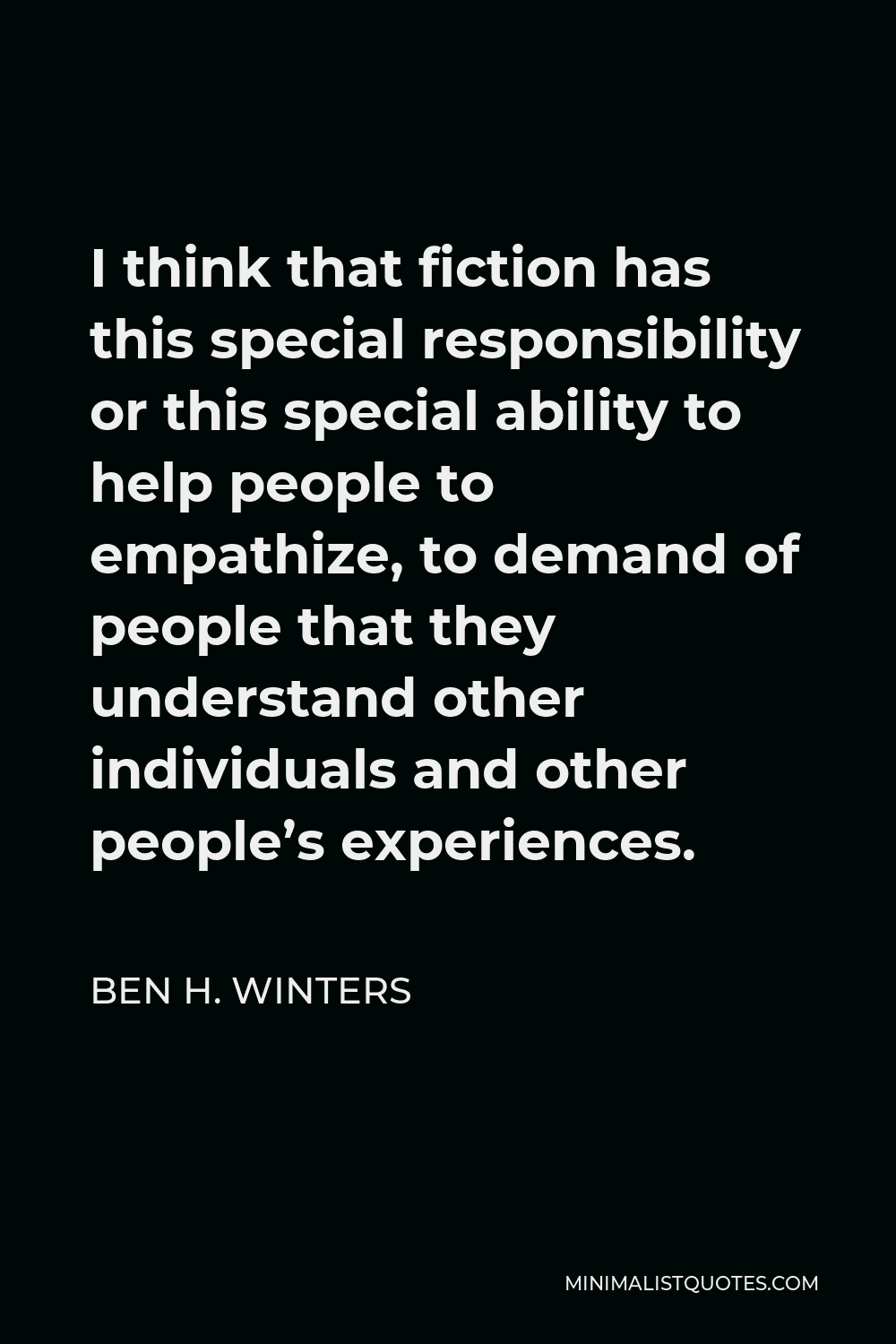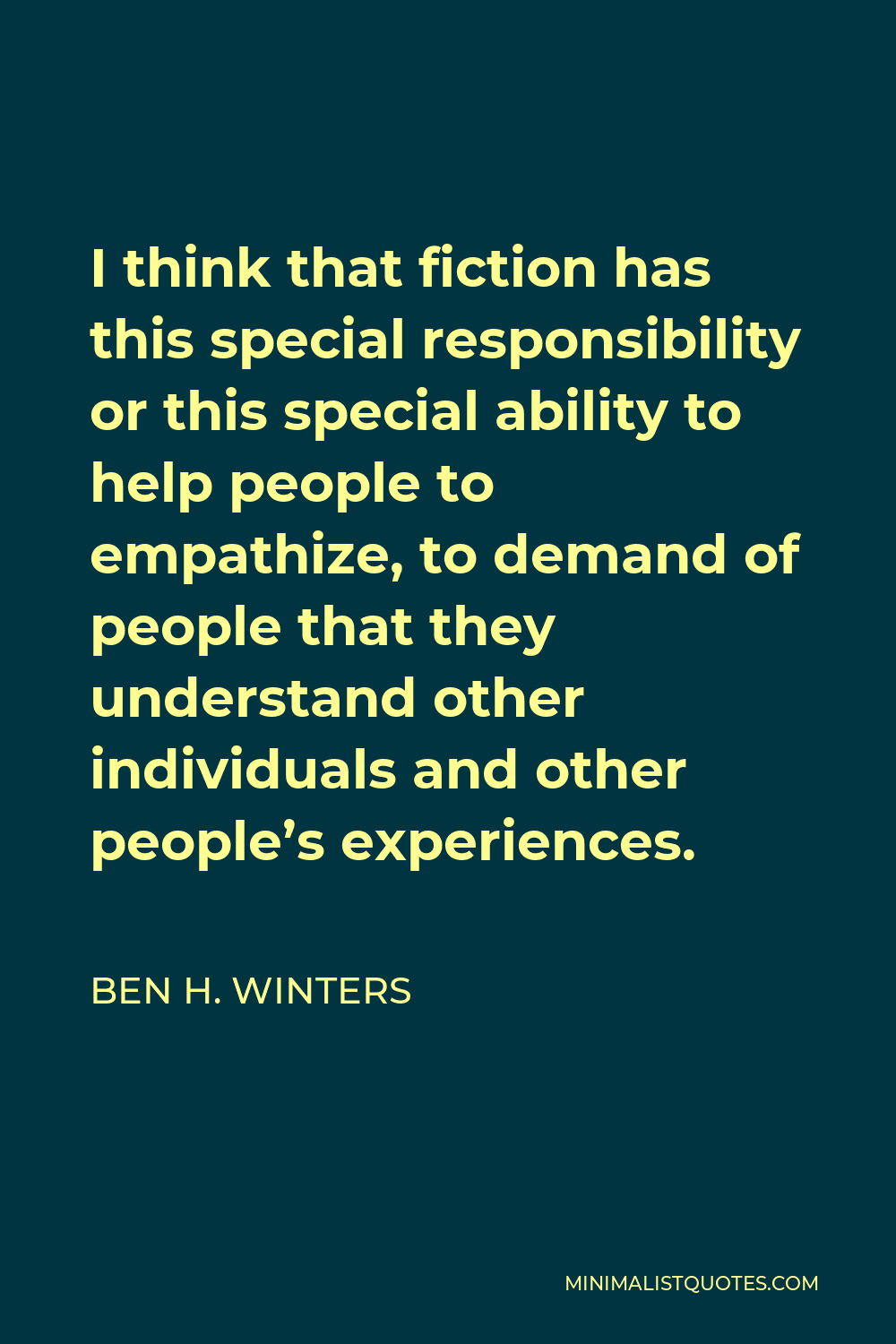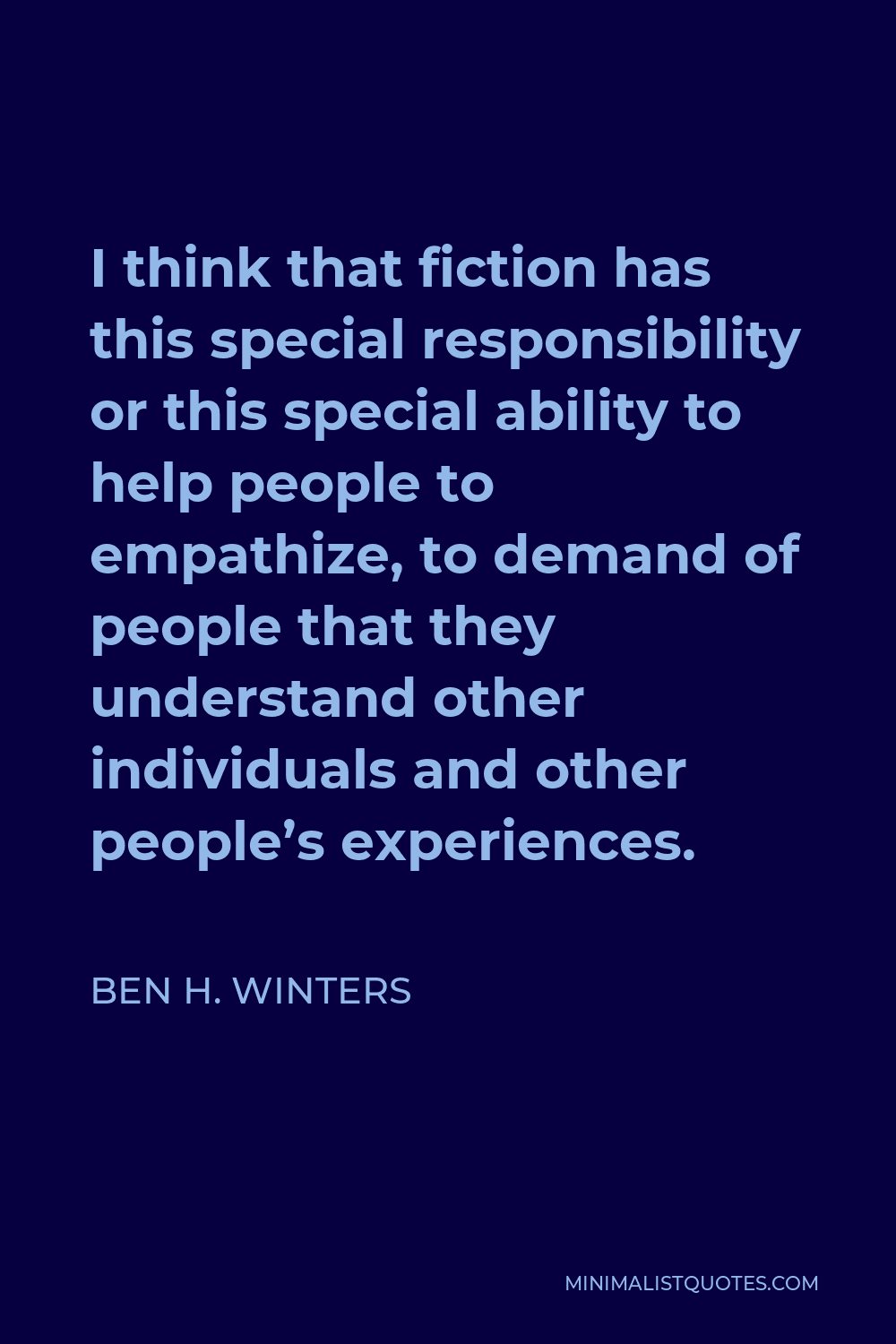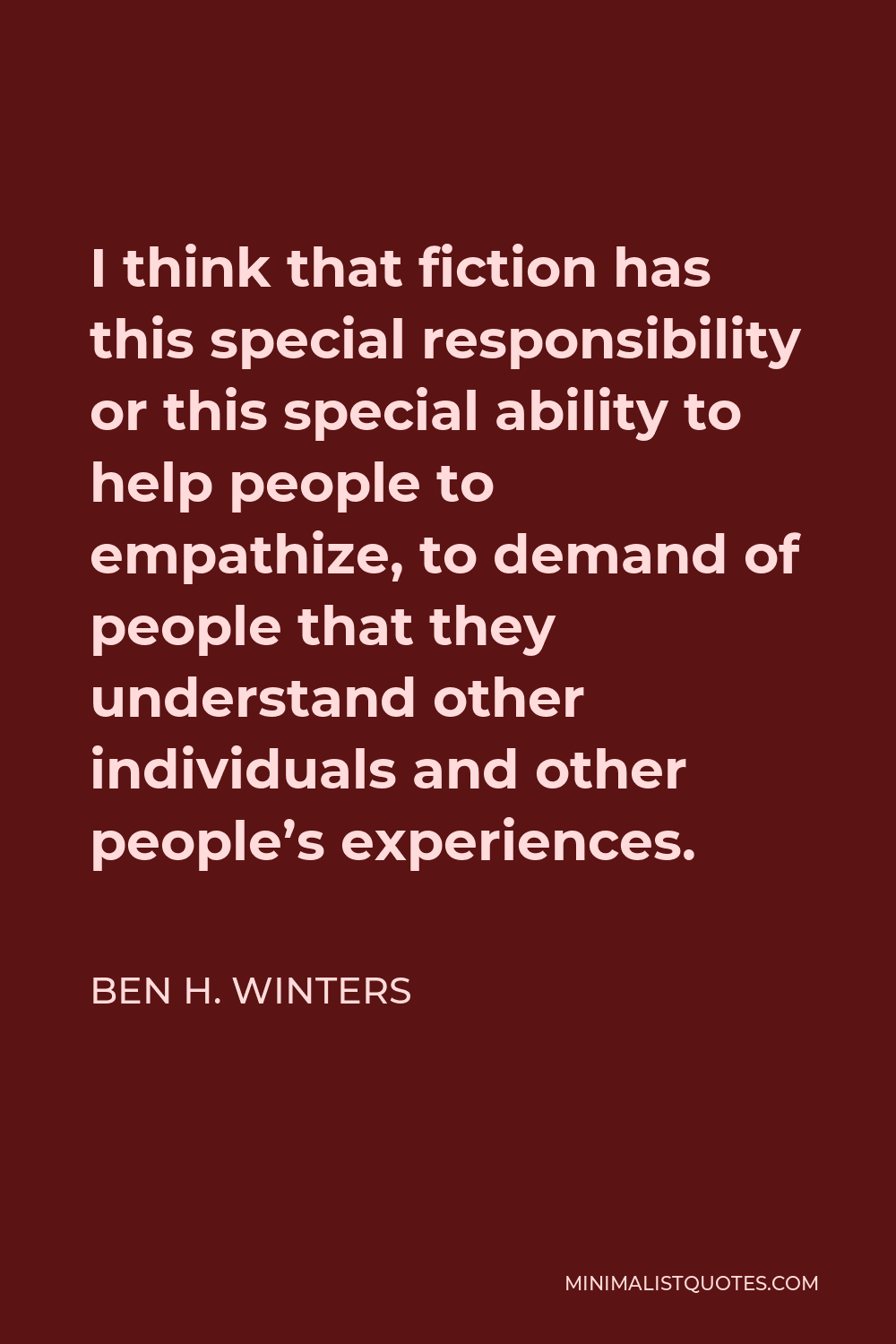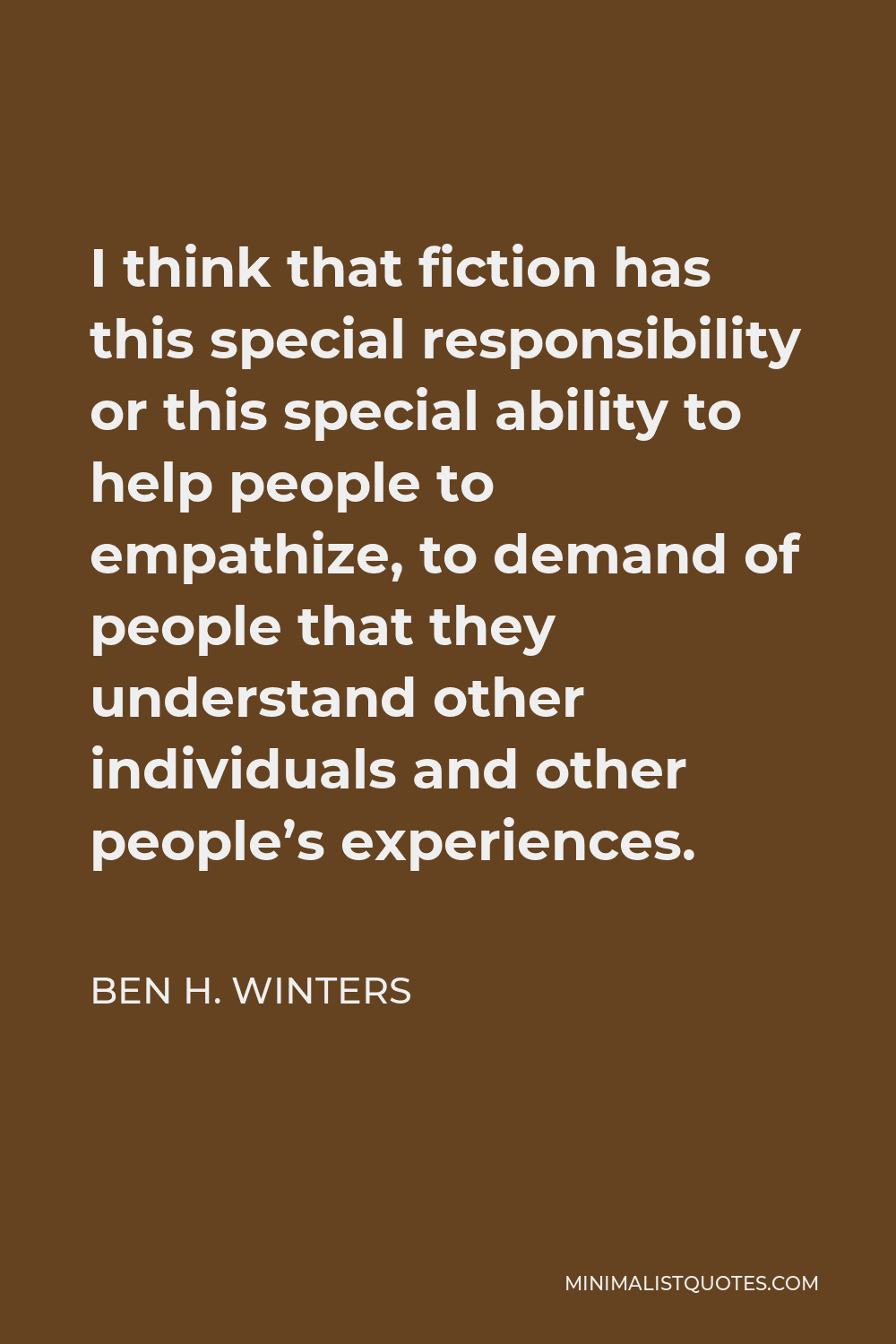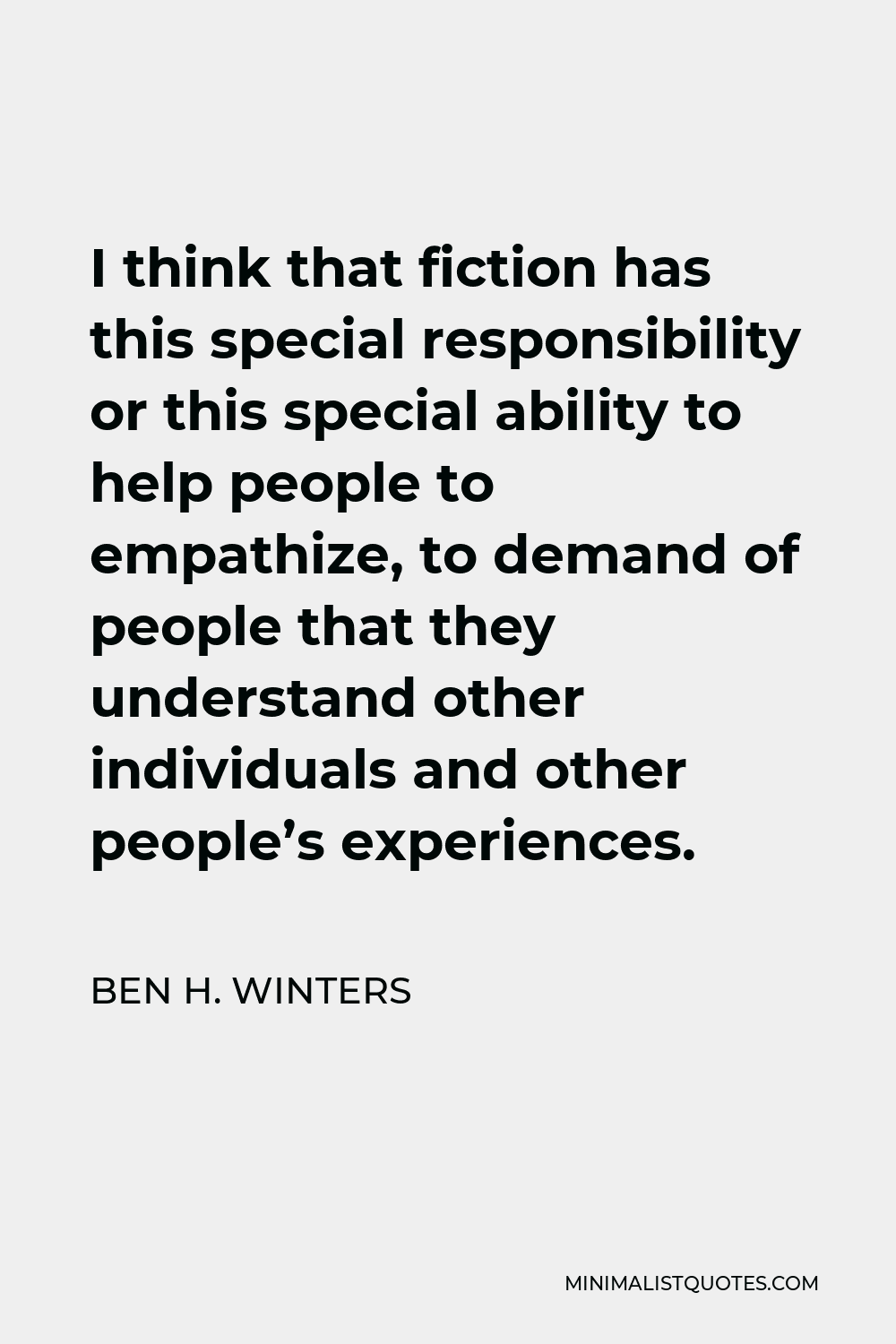We forget the conditions – not only in slavery – but after slavery, when there was this purposeful locking out of African Americans from economic opportunity. Or we forget today’s incarceration rates, and educational and housing discrimination; all of these things.
BEN H. WINTERSI think that fiction has this special responsibility or this special ability to help people to empathize, to demand of people that they understand other individuals and other people’s experiences.
More Ben H. Winters Quotes
-





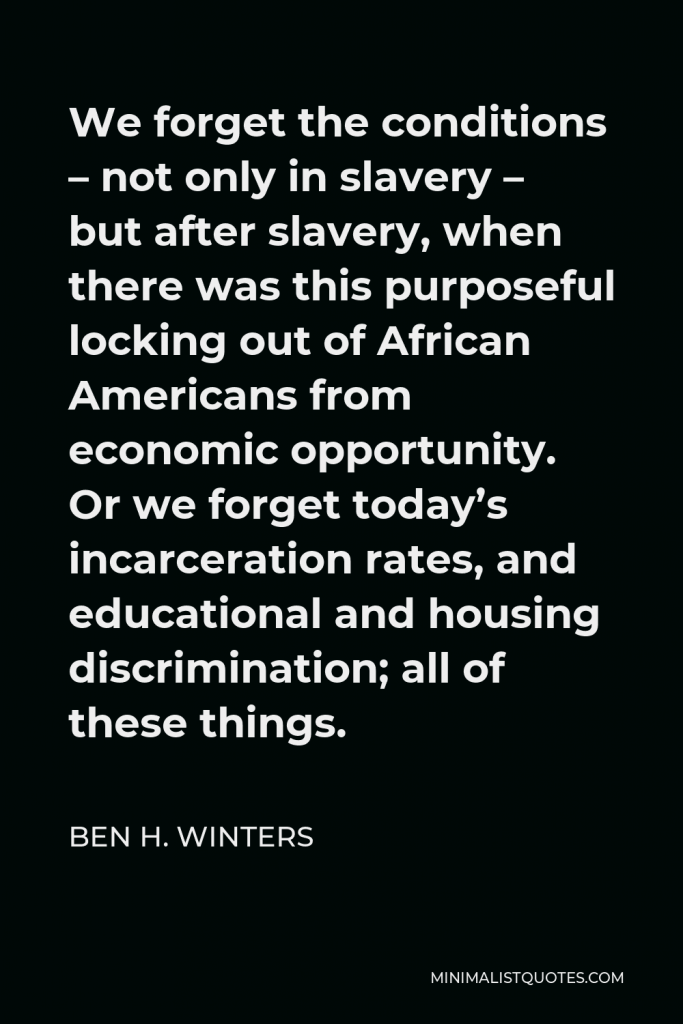

-





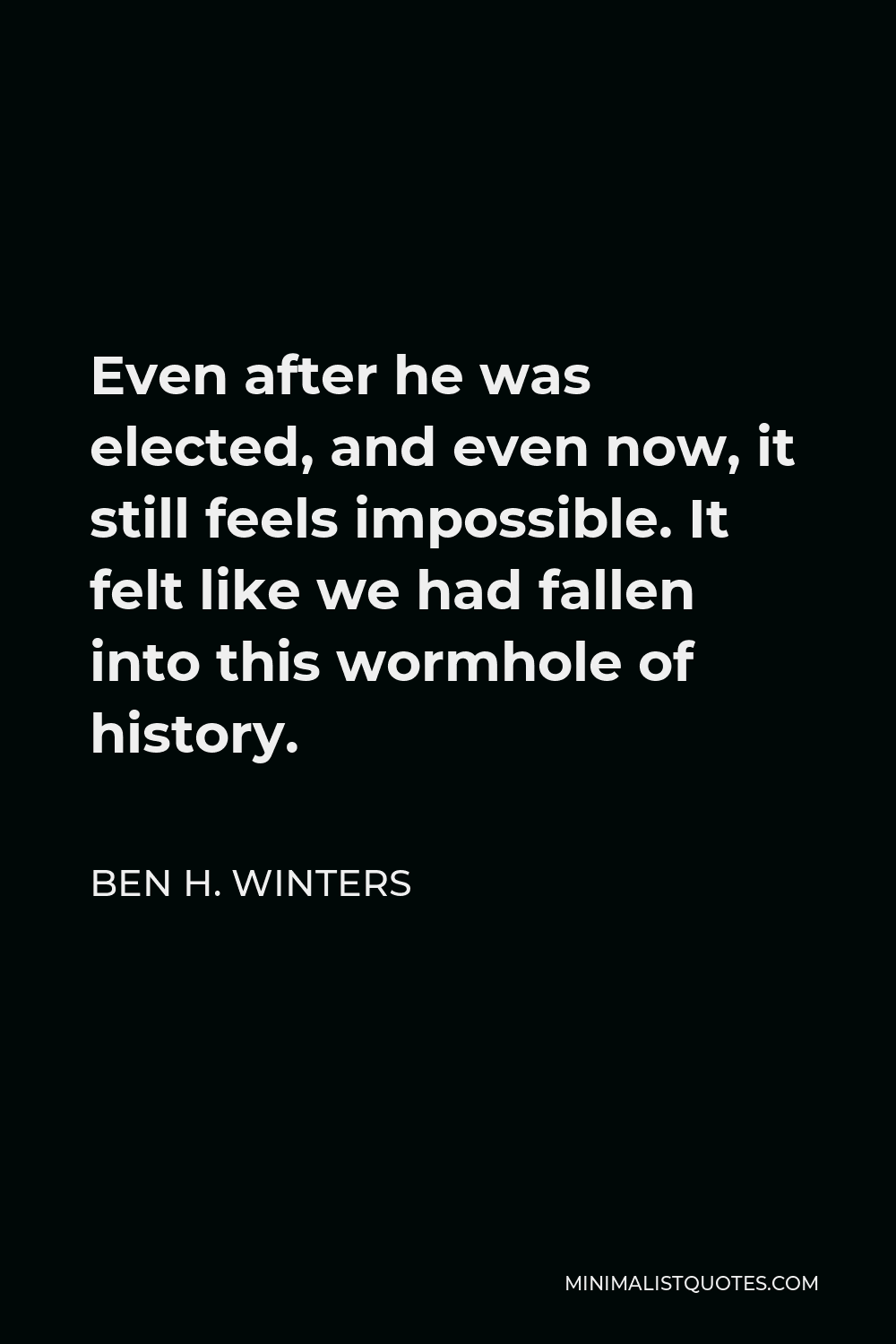
Even after he was elected, and even now, it still feels impossible. It felt like we had fallen into this wormhole of history.
BEN H. WINTERS -





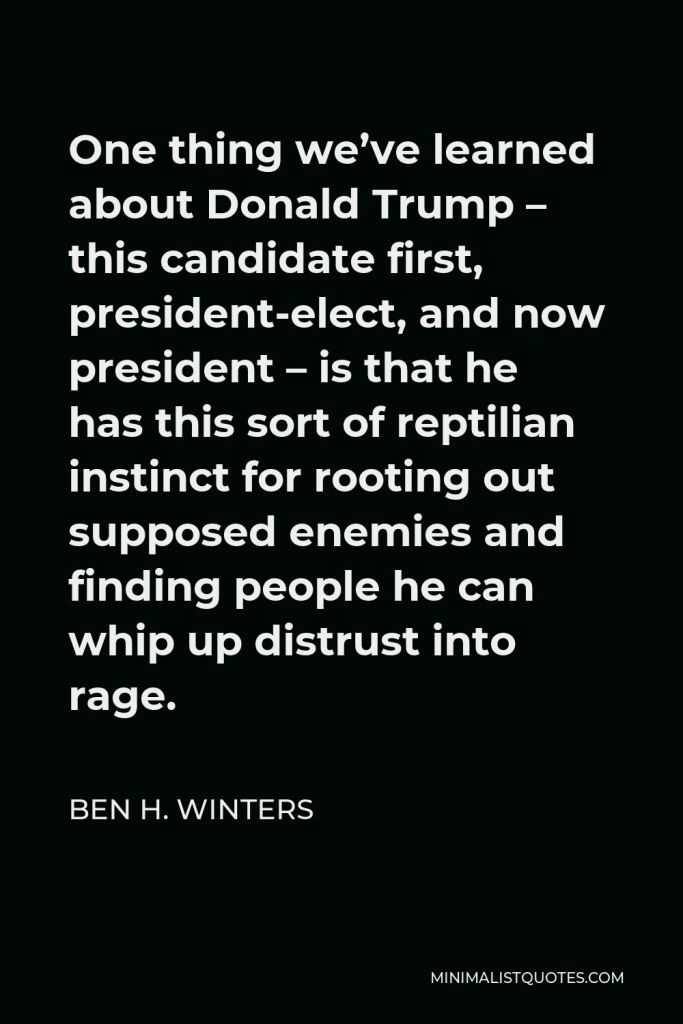

One thing we’ve learned about Donald Trump – this candidate first, president-elect, and now president – is that he has this sort of reptilian instinct for rooting out supposed enemies and finding people he can whip up distrust into rage.
BEN H. WINTERS -





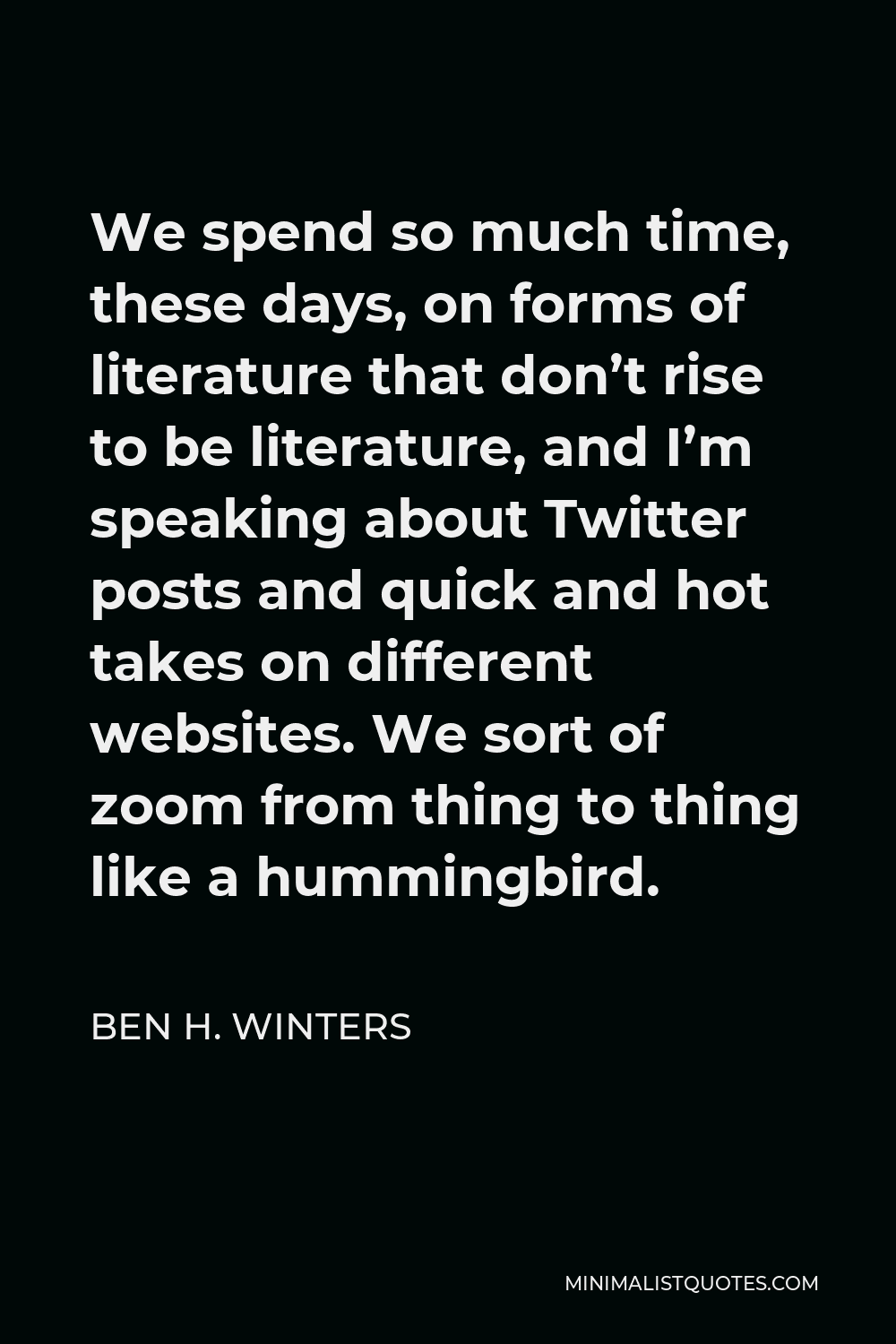
We spend so much time, these days, on forms of literature that don’t rise to be literature, and I’m speaking about Twitter posts and quick and hot takes on different websites. We sort of zoom from thing to thing like a hummingbird.
BEN H. WINTERS -






The election of Donald Trump is, to me, this very clownish personality with no political experience, who had literally been using fascist slogans in his campaign. It had seemed so impossible.
BEN H. WINTERS -





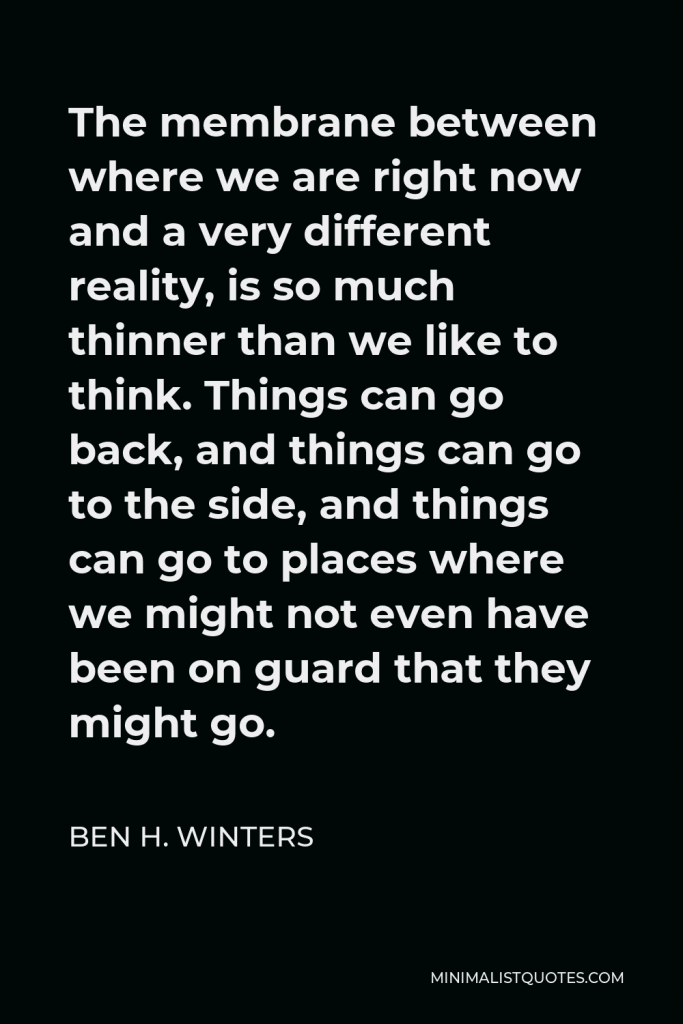

The membrane between where we are right now and a very different reality, is so much thinner than we like to think. Things can go back, and things can go to the side, and things can go to places where we might not even have been on guard that they might go.
BEN H. WINTERS -





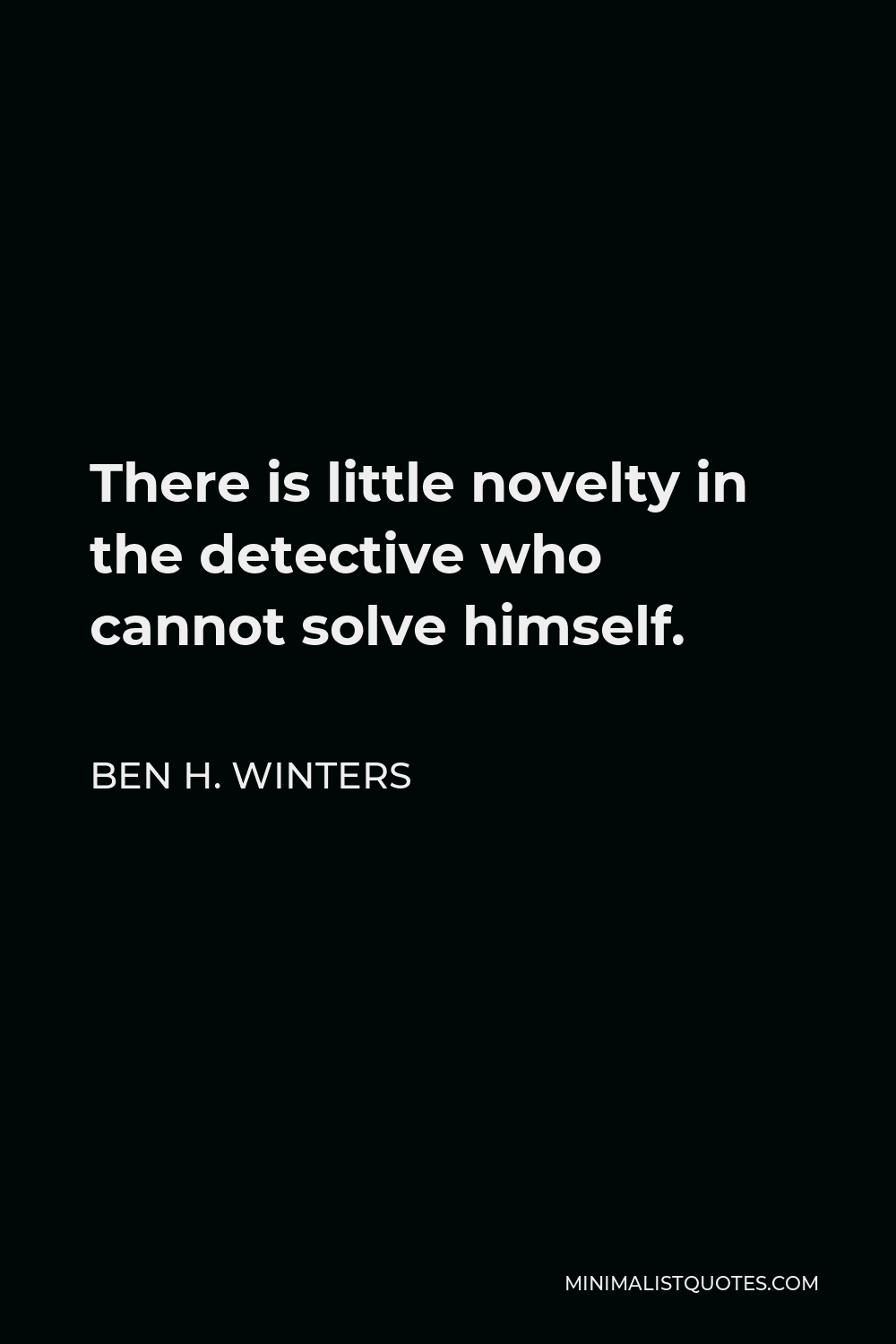
There is little novelty in the detective who cannot solve himself.
BEN H. WINTERS -





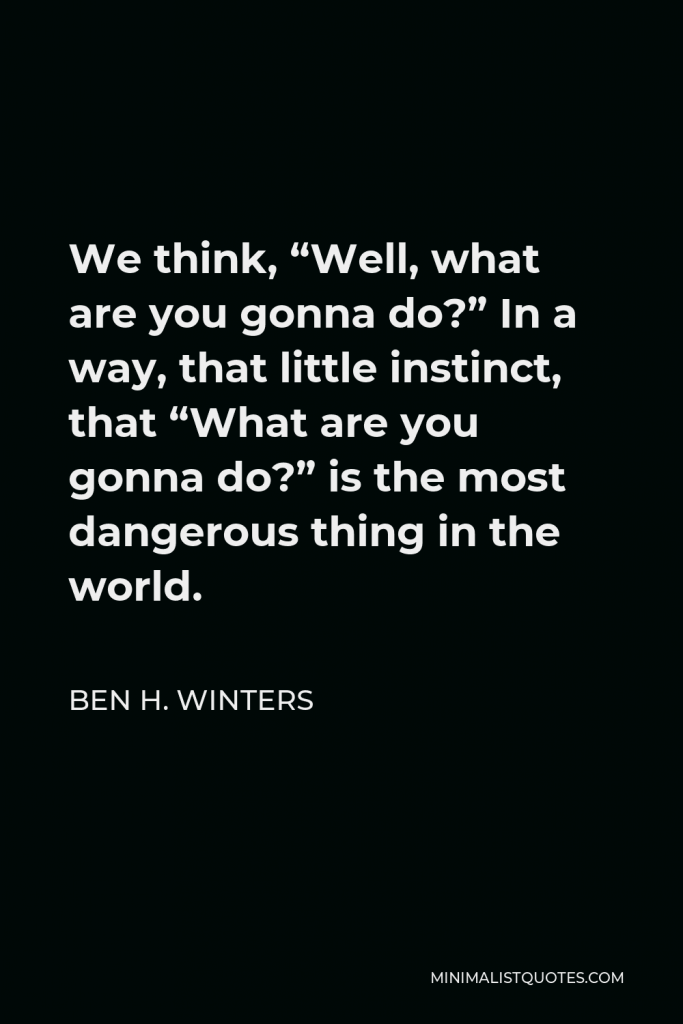

We think, “Well, what are you gonna do?” In a way, that little instinct, that “What are you gonna do?” is the most dangerous thing in the world.
BEN H. WINTERS -





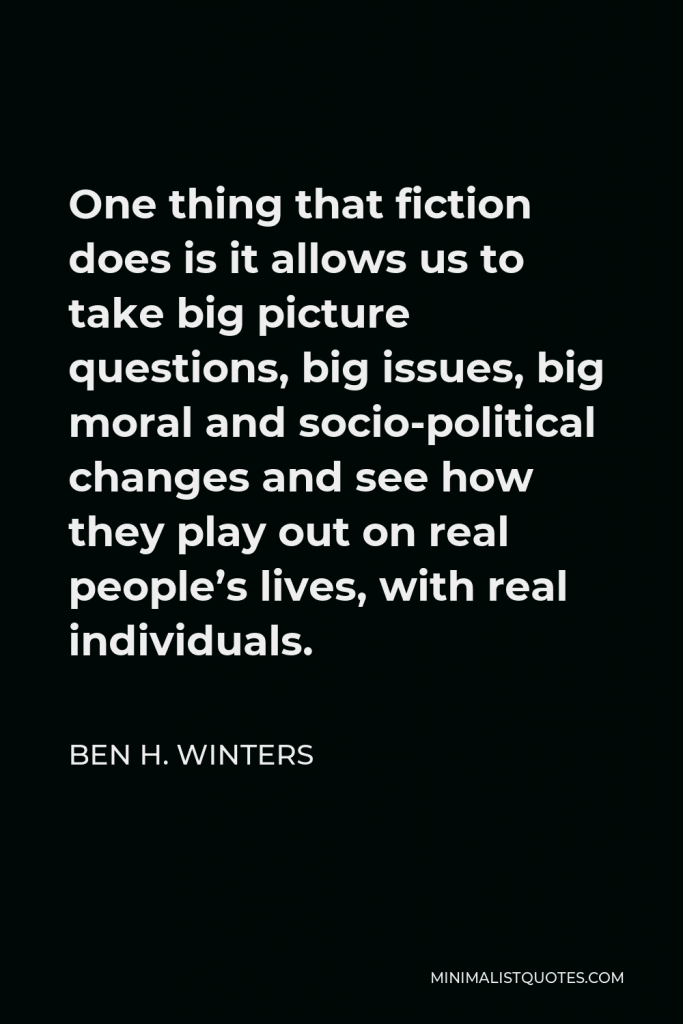

One thing that fiction does is it allows us to take big picture questions, big issues, big moral and socio-political changes and see how they play out on real people’s lives, with real individuals.
BEN H. WINTERS -





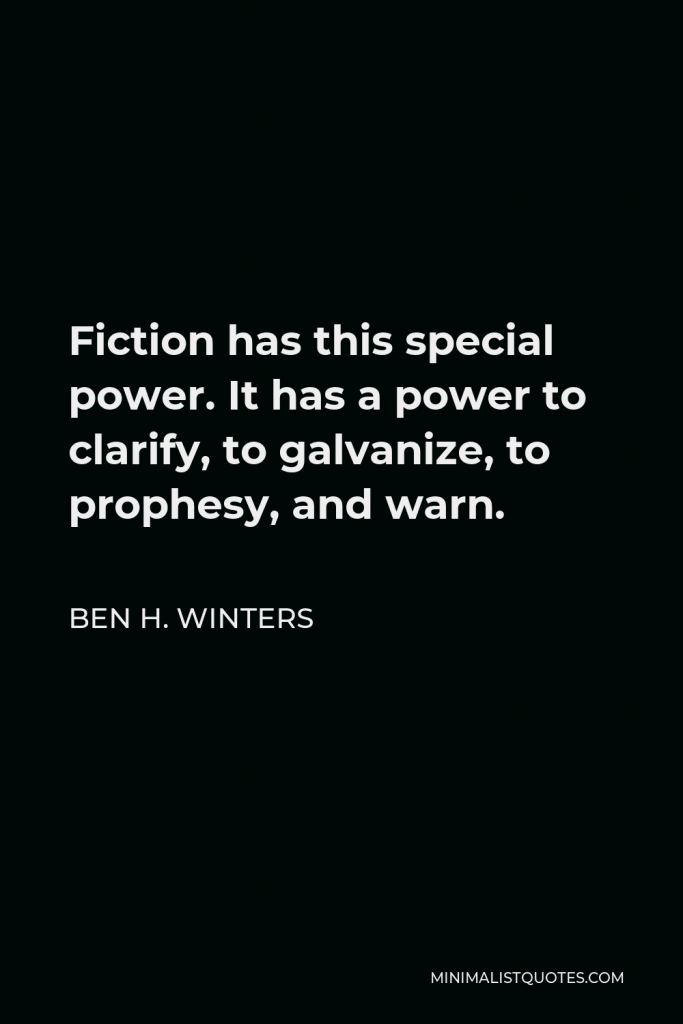

Fiction has this special power. It has a power to clarify, to galvanize, to prophesy, and warn.
BEN H. WINTERS -





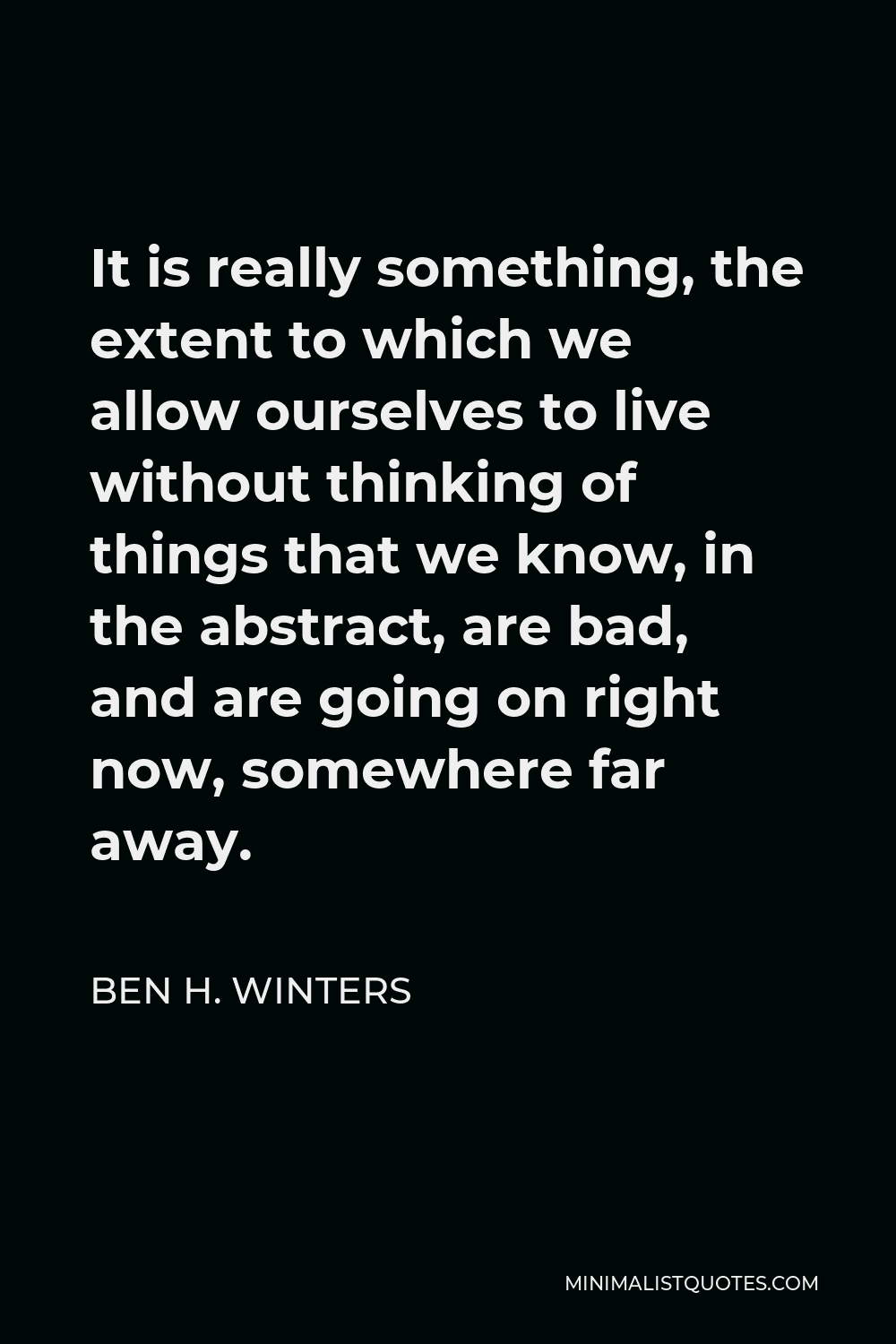
It is really something, the extent to which we allow ourselves to live without thinking of things that we know, in the abstract, are bad, and are going on right now, somewhere far away.
BEN H. WINTERS -





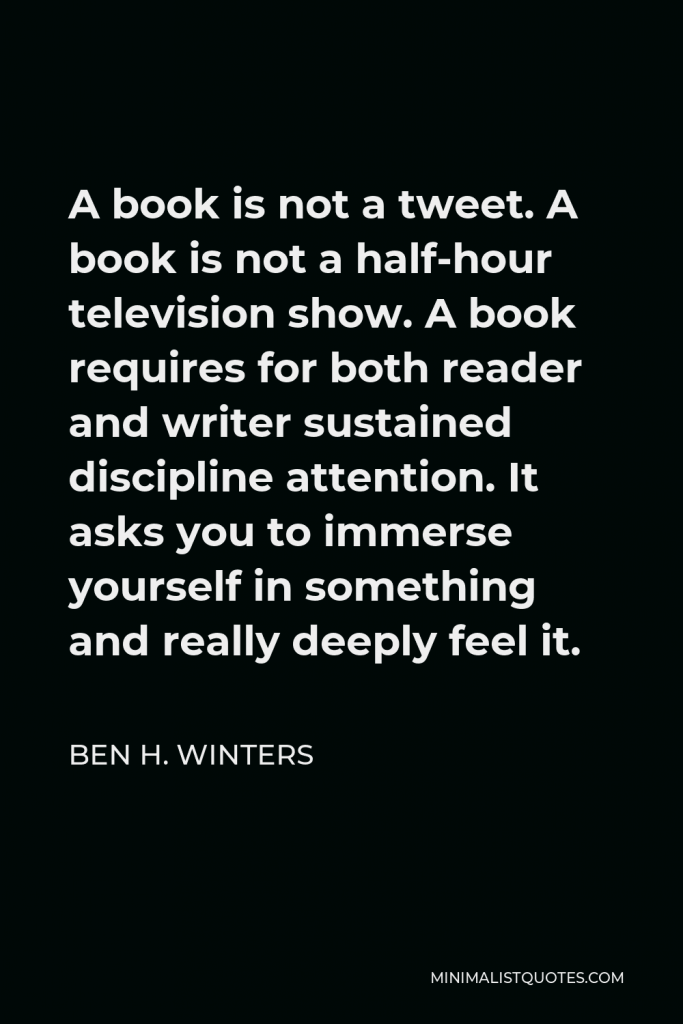

A book is not a tweet. A book is not a half-hour television show. A book requires for both reader and writer sustained discipline attention. It asks you to immerse yourself in something and really deeply feel it.
BEN H. WINTERS -





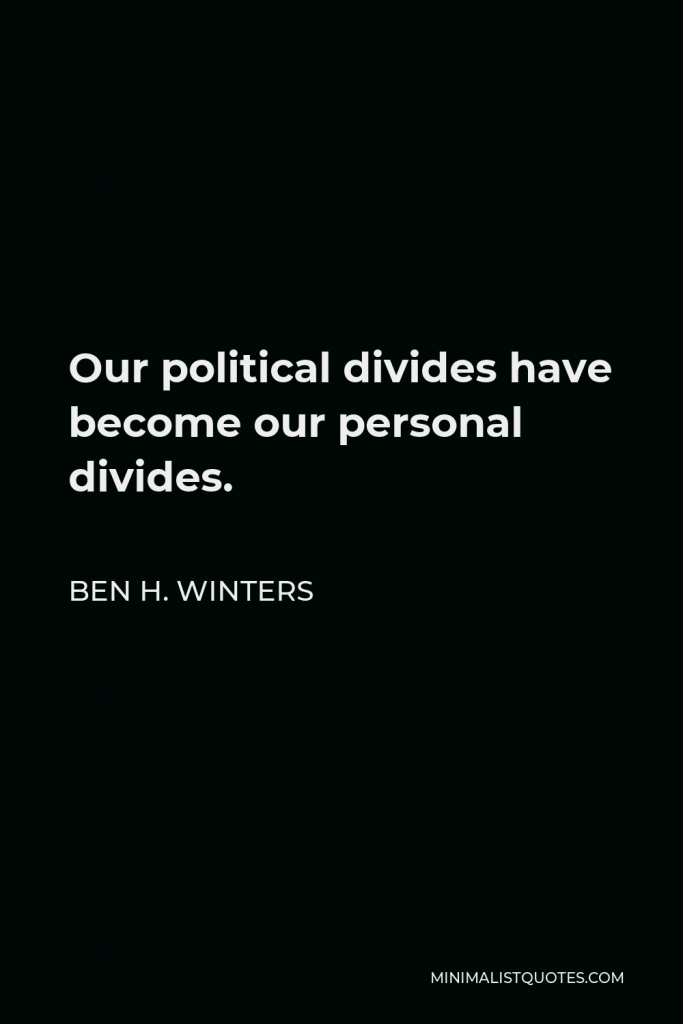

Our political divides have become our personal divides.
BEN H. WINTERS -





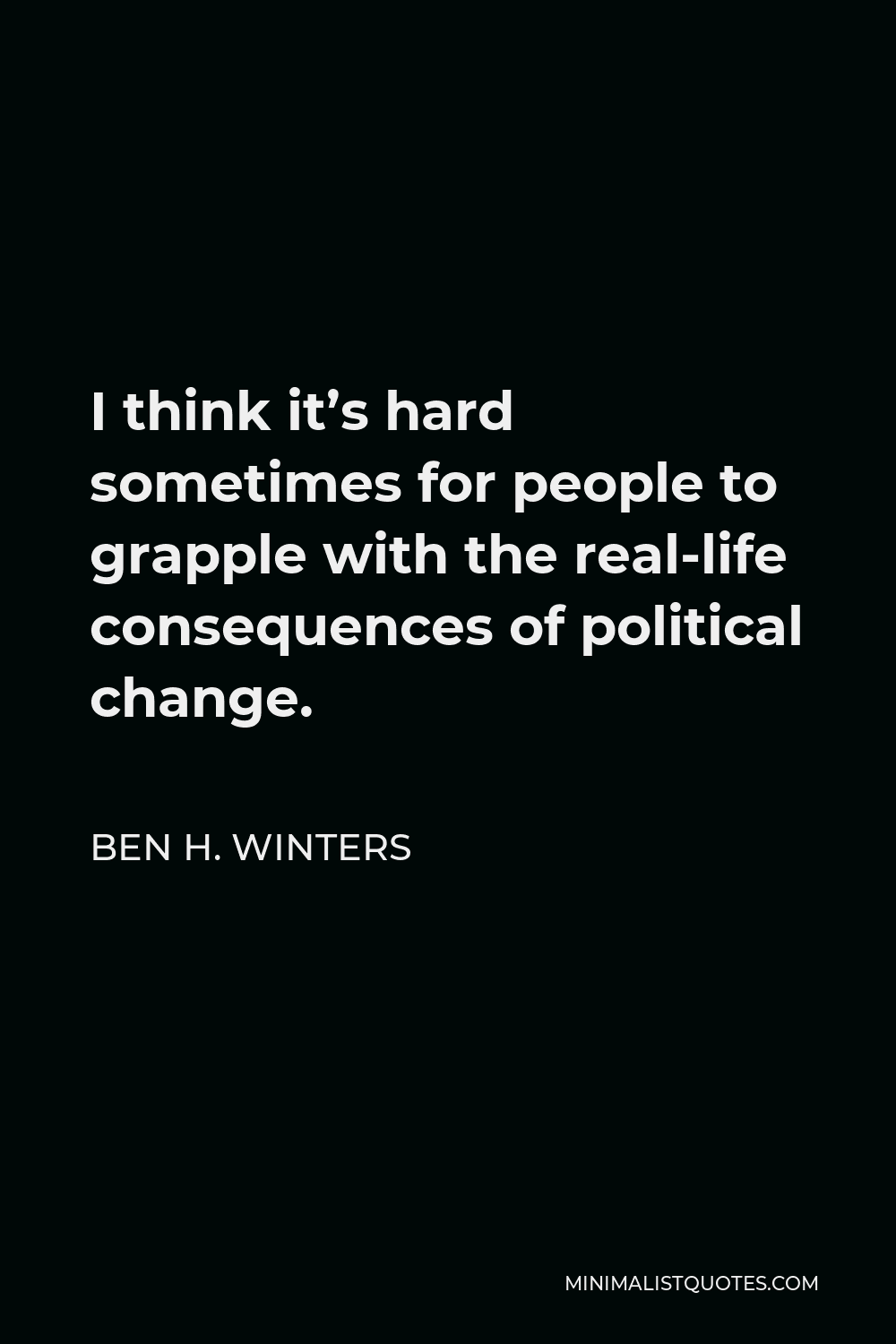
I think it’s hard sometimes for people to grapple with the real-life consequences of political change.
BEN H. WINTERS -





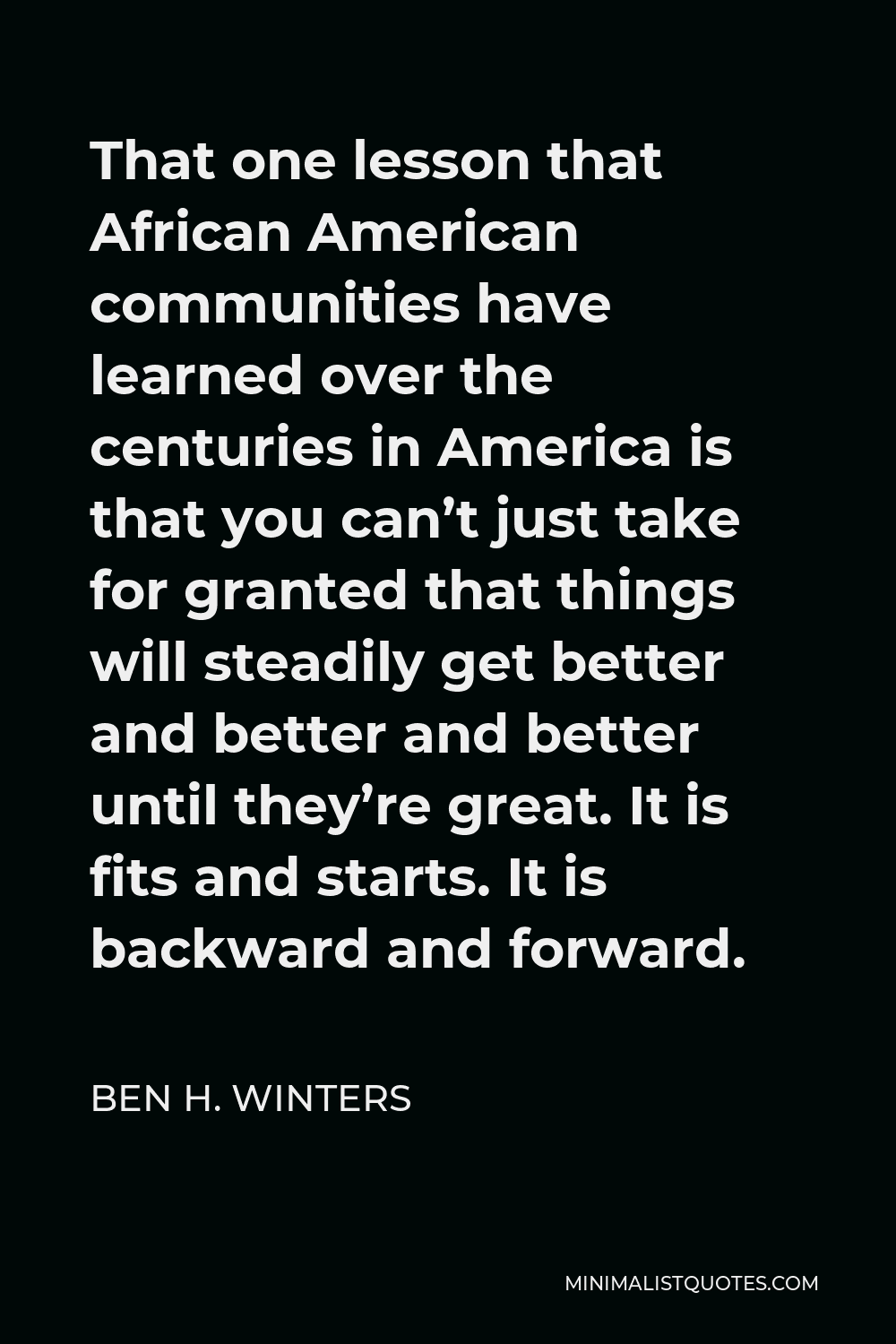
That one lesson that African American communities have learned over the centuries in America is that you can’t just take for granted that things will steadily get better and better and better until they’re great. It is fits and starts. It is backward and forward.
BEN H. WINTERS -





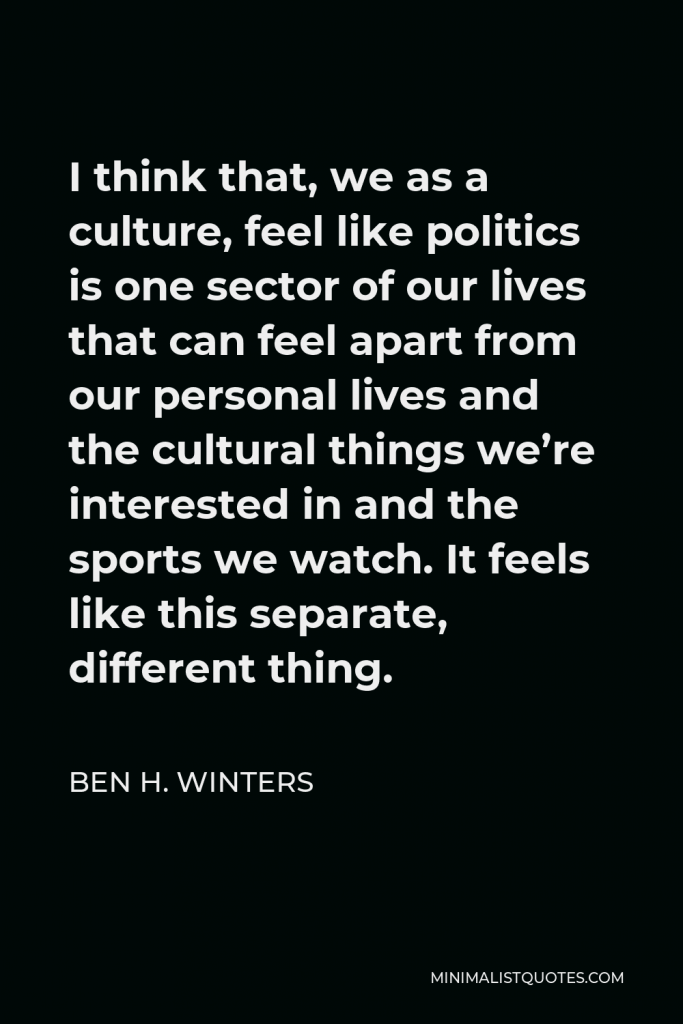

I think that, we as a culture, feel like politics is one sector of our lives that can feel apart from our personal lives and the cultural things we’re interested in and the sports we watch. It feels like this separate, different thing.
BEN H. WINTERS
